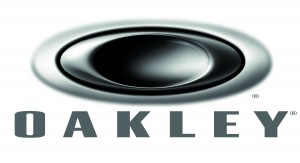 Oh look! Another shiny new gadget! What could possibly go wrong, besides, you know, everything?
Oh look! Another shiny new gadget! What could possibly go wrong, besides, you know, everything?
From the New York Times yesterday:
Oakley, the eyewear company, makes a $600 ski goggle that comes with a warning in the package: Do not operate product while skiing.
Zeal HD camera goggles allow athletes to make videos.
It is an admonition that should be taken with a grain of salt, said Chris Petrillo, a product manager at the company. Of course, he said, the digital goggles are meant for skiing and snowboarding.
“Welcome to the world of lawyers and litigation,” he said.
But maybe the lawyers are on to something.
There are lots of people out there that like to make fun of warning labels, often because they are placed in silly places and say silly things. Like a bag of peanuts that warns it may have been produced in a plant with nut products.
Perhaps Chris Petrillo is one of them. The Oakley lawyers see a dangerous product and then the company laughs at its own lawyers. Because, you know, the lawyers are all just a bunch of chuckleheads. Who would really listen to what the lawyers are saying, right? Wink. Wink.
So here’s the deal, the article describes a wave of new goggles and sports glasses coming out that give real-time feedback to the participants, right there in the glasses. Video, text messages, phone, the whole enchilada.
But if you are skiing, running, biking, etc., then real time data is exceptionally difficult to receive and process because you are actually engaged in a high octane activity that requires your senses. Even listening to music on an old time Walkman or modern equivalent can be dangerous when used in outdoor sports — a widely ignored warning — as it can distract and disconnect the listener from the environment.
This is not an improvement over a quick glance at the watch, as one industry participant claims in the article. Your eyes still have to refocus to the image and then refocus again to your immediate surroundings.
I wrote about this previously with Google Glass and the dangers of distracted driving. Distracted skiing/biking/running may be slightly less dangerous, but if you’re the person that gets hit by the skier this will not be a consolation.
Want to stick a Go-Pro camera on your chest or helmet to film your family and friends? No problem. Want to put text messages in the users field of vision while they are moving? Big problem. Big problems indeed.
Hospital number crunchers will love this stuff as it will bring in more injured. The goggle company lawyers? Well, they probably get paid by the hour, so perhaps they like it too. Unless, of course, they actually want to protect the company, in which case they aren’t too pleased.
The question is whether civil jurors are in any way qualified to make an intelligent decision about whether somebody trying to ski and read e-mail at the same time was the unwitting victim of technology. Isn’t it better to leave all that to the skier to decide? It seems jurors, or the threat of them, ends up driving the development of technology when users should be in charge.
The question is whether civil jurors are in any way qualified to make an intelligent decision about whether somebody trying to ski and read e-mail at the same time was the unwitting victim of technology.
I didn’t address liability of the device makers, except to the extent that one of them has just ignored the lawyers. Does that in some way void the warnings? Or is it indicative of the marketing campaign that will contradict the warnings?
The devices are dangerous if used as marketed. How that will translate to liability (if at all) is a different question.
I want a set of glasses that shows me dutifully running when I am in fact sitting on my couch with a beer. Then the warning message does its job.
Unless it warns me not to use alcohol as well.
“Does that in some way void the warnings?”
Does it? Heck if I know. That, to me, is the most interesting question to come out of this discussion.
Does it? Heck if I know. That, to me, is the most interesting question to come out of this discussion.
Yup. Warning gets slapped on, and company says “just kidding!”
Now what?
I think it will eventually be prohibited like texting while driving. There’s already enough publicity about people walking into cars, holes, etc. while doing something on their smartphones.
You can be your own black box, sort of.